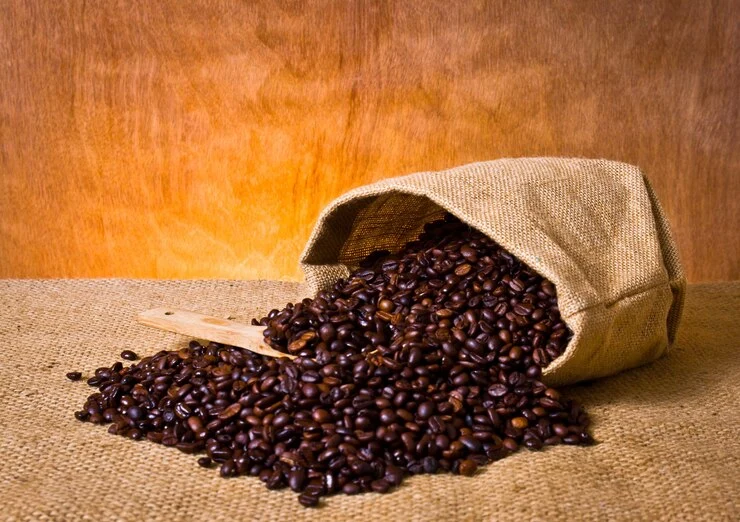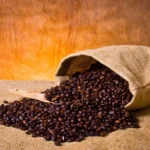Luwak coffee, also called Kopi Luwak, is one of the most unique and expensive coffees in the world. It is made using a special process where the Asian palm civet eats and digests coffee cherries. This unique method enhances the coffee’s flavor, making it a favorite among coffee lovers.
The coffee is famous for its unusual production process, which sets it apart from regular coffee. When the civet digests the cherries, its stomach enzymes naturally change the beans. This process gives Luwak coffee a smooth, rich taste that is hard to find anywhere else.
Known as “cat poop coffee,” Luwak coffee gets its nickname because the beans are collected from civet droppings. However, the beans are carefully cleaned and roasted to ensure they are safe to drink. This interesting process makes Luwak coffee both famous and talked about worldwide.
Luwak Coffee Process
Luwak coffee is made through a rare process that involves the Asian palm civet eating coffee cherries. The civet digests the cherries, and its stomach enzymes naturally change the beans to enhance their flavor. After passing through the civet, the beans are carefully collected, cleaned, and roasted for consumption.
The Asian palm civet plays a key role in making Luwak coffee unique and special. By digesting the coffee cherries, the civet removes some of the bitterness from the beans. This natural fermentation process creates the smooth and rich taste that Luwak coffee is known for worldwide.
Ethical considerations are very important in the production of Luwak coffee to protect the civets. Many farms are now focusing on sustainable practices, like using free-roaming civets for coffee production. This helps ensure that the coffee is made responsibly while supporting the welfare of the animals.
The Animal behind the Name – Asian Palm Civet
The Asian palm civet is a small, nocturnal animal that plays a key role in making Luwak coffee. It eats ripe coffee cherries, and its digestion process helps create the unique flavor of the beans. The civet is vital to this coffee-making method, which has fascinated people around the world.
This animal lives in tropical forests, where it interacts closely with coffee plants and their surroundings. Civets naturally select the ripest and best cherries, which improves the quality of the coffee beans. Their habitat is important, as healthy ecosystems allow the civets to thrive and contribute to coffee production.
Ethical sourcing is crucial to protect civets and ensure they are not harmed in the process of making coffee. Some farms keep civets in cages, which can harm their health and well-being. Supporting ethical practices, like using free-roaming civets, is essential for creating coffee responsibly and protecting these unique animals.
Luwak Coffee Price Per Kg: What Makes It So Expensive?
Luwak coffee is very expensive because of its rarity and the time-consuming process of its production. The unique role of the Asian palm civet and careful bean preparation make it a luxury item. These factors create a limited supply, which drives up the price of Luwak coffee worldwide.
The price of Luwak coffee per kilogram varies greatly depending on where it is sold across the globe. In some countries, it is known as “cat poop coffee” and is priced as high as several hundred dollars. The combination of demand and exclusivity has made it one of the most expensive coffees in the world.
Luwak coffee is part of a growing trend in the global luxury coffee market, which values rare flavors. Consumers are willing to pay more for unique coffee experiences like Luwak coffee’s smooth and rich taste. This trend continues to shape the coffee industry and highlight the importance of high-quality, specialty products.
Benefits of Luwak Coffee
Luwak coffee offers several health benefits that make it a popular choice among coffee drinkers worldwide. It contains antioxidants that can help reduce cell damage and support overall well-being. Many people also find that its low acidity is gentle on the stomach compared to regular coffee.
The flavor profile of Luwak coffee is one of its most unique and appealing features for coffee enthusiasts. Its smooth, rich taste, with reduced bitterness, is highly valued by those who love gourmet coffee. This distinctive flavor makes Luwak coffee stand out in the world of specialty beverages.
The civet’s digestion process has a major impact on the coffee’s taste and acidity, creating a better balance. During digestion, enzymes break down proteins that cause bitterness, resulting in a milder and sweeter flavor. This natural transformation gives Luwak coffee a taste that is unlike any other type of coffee.
Kopi Luwak Coffee for Sale: Where to Find It
Finding authentic Kopi Luwak coffee can be challenging because of its rarity and the presence of counterfeit products. To ensure authenticity, it is important to buy from trusted sellers who provide certification and transparency. Always research the source and check for labels that confirm ethical and genuine production practices.
Reputable sellers and online platforms are great options for purchasing Kopi Luwak coffee safely and conveniently. Well-known coffee brands or specialty coffee shops often sell certified Luwak coffee for buyers seeking quality. Online marketplaces with verified reviews also help ensure you are getting authentic coffee, not fake products.
Counterfeit Luwak coffee is common, and it is important to be aware of scams in the market. Many fake products are sold at lower prices but do not offer the true Luwak coffee experience. Buyers should always prioritize quality over cost to enjoy the rich, smooth flavor of real Kopi Luwak coffee.
Visiting a Luwak Coffee Cafe
When visiting a cafe specializing in Luwak coffee, you can expect a unique and memorable experience. These cafes often showcase the production process and share details about the coffee’s journey from bean to cup. Visitors can enjoy freshly brewed Luwak coffee while learning about its rich history and distinct flavor.
Popular regions for experiencing authentic Luwak coffee include Indonesia, particularly Bali and Sumatra, where it is traditionally made. Many local cafes in these regions allow visitors to taste Luwak coffee while enjoying the beautiful surroundings. These areas are famous for their high-quality Luwak coffee and warm hospitality toward tourists.

For coffee tourism enthusiasts, visiting a Luwak coffee cafe is an exciting and must-try adventure that beautifully combines culture and flavor. To make the most of this experience, it is important to look for cafes that emphasize ethical sourcing and sustainable practices, as this helps support responsible coffee production. Moreover, exploring these cafes not only introduces you to the rich history behind Luwak coffee but also offers an unforgettable opportunity to connect with the world of specialty coffee in a meaningful way.
Luwak Coffee: A Controversial Delight
Luwak coffee has faced criticism due to ethical concerns about the treatment of civets on some commercial farms. In many cases, civets are kept in cages and forced to eat coffee cherries, leading to poor living conditions. These practices have raised questions about animal welfare and the sustainability of such production methods.
Efforts to promote ethical and cruelty-free Luwak coffee production are becoming more common in response to these concerns. Some farms now focus on using wild, free-roaming civets to create coffee without harming the animals. These initiatives aim to protect civets while maintaining the unique qualities of Luwak coffee.
Consumers play an important role in supporting ethical practices by choosing responsibly sourced Luwak coffee from trusted sellers. Awareness of production methods and certification labels can help ensure the coffee is cruelty-free. By prioritizing ethical choices, buyers can enjoy Luwak coffee while supporting the well-being of civets and sustainable farming practices.
Bottom Lines
Luwak coffee is a unique and exclusive drink that stands out for its rare production process and distinct flavor. The coffee’s journey from the civet to the cup makes it one of the most fascinating and sought-after beverages worldwide. Its rarity and luxurious taste make it a must-try for coffee lovers seeking a special experience.
It is crucial to support ethical practices in the production of Luwak coffee to ensure its sustainability. Choosing coffee that is responsibly sourced and cruelty-free helps protect civets and promotes fair farming practices. By savoring this exotic coffee responsibly, you can enjoy its rich flavor while making a positive impact on the environment and animal welfare.
Frequently Asked Questions (FAQS)
Q1: Why is Luwak coffee so expensive?
Luwak coffee is expensive because it is rare and takes a long time. The coffee beans are eaten and digested by a civet, which makes them special. The process of making Luwak coffee is complex, making it a luxury product.
Q2: Is Luwak coffee halal or haram?
Luwak coffee is halal if producers follow the right methods. It uses natural ingredients like coffee cherries and civet digestion. Ensure that the coffee is ethically sourced and avoids any forbidden practices.
Q3: How is Luwak coffee produced?
Luwak coffee is made by first allowing a civet to eat coffee cherries. The beans are then collected from the civet’s waste, cleaned, and processed. This unique method gives the coffee its special flavor and low acidity.
Q4: Is Kopi Luwak a cat?
Kopi Luwak is not a cat; it is made from beans eaten by an animal called a civet. The civet is a small mammal, not a cat, and lives in tropical forests. It plays a key role in producing Luwak coffee by selecting the best coffee cherries.
Q5: Is Luwak coffee healthy?
Luwak coffee can be healthy because it has antioxidants that may help protect your body. It is also less acidic than regular coffee, making it easier on the stomach. However, like any coffee, it should be consumed in moderation for the best health benefits.
Q6: Can you eat the fruit of a coffee tree?
Yes, you can eat the fruit of a coffee tree called a coffee cherry. The fruit tastes sweet, but people usually don’t eat it because they use the beans inside to make coffee. After they eat the fruit, they process the beans to create the coffee we drink.







